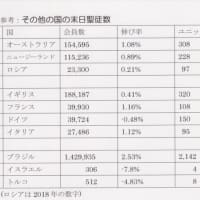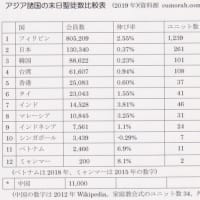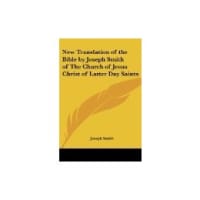【米公電流出】中国外交「けんか早く、世界で友失う」 日本も中国を非難と米大使
2010.12.7 13:25
このニュースのトピックス:日中関係 以下転載
英紙ガーディアンは6日までに、中国が「けんか早い」外交姿勢のために「世界中で友人を失っている」とする公電を米国のハンツマン駐中国大使が送っていたと報じた。内部告発サイト「ウィキリークス」が提供した文書に基づいている。
公電は今年2月付で、日本当局者の発言を引用し、沖縄県・尖閣諸島をめぐり中国船舶が「攻撃性を増大」したため、日本の船との「危険な遭遇が多数起きた」と報告している。
また別の日本外交官は、首脳会談の準備に際して中国当局者が「攻撃的で(対処するのが)難しい」と漏らしたという。
報道によるとハンツマン大使は、中国外交を「力を見せびらかし、独断的」だと非難。欧州や日本、インドの外交官も中国を非難していると指摘した。(共同)
* 関連して参考 本ブログ 2010/10/15 今や世界が中国に対して「ノー」という時代
ハンツマン大使について 本ブログ 2009/12/22 読めないモルモン教会に対する中国の門戸解放
英文原文
http://latestchina.com/article/?rid=24374
WikiLeaks cables:
'Aggressive' China losing friends around the world
Published: 12/4/2010 1:30:01 PM GMT
Original Cached
China's "newly pugnacious" foreign policy is "losing friends worldwide", the US ambassador to Beijing argued in a cable last February.
European diplomats were "most vocal", although Indian and Japanese counterparts voiced similar complaints, Jon Huntsman wrote. In other dispatches US diplomats quote unhappy African officials.
In his cable, entitled "Stomp around and carry a small stick: China's new 'global assertiveness' raises hackles, but has more form than substance", he accused Beijing of "muscle-flexing, triumphalism and assertiveness", but added that some observers saw it as rhetoric designed to appeal to Chinese public opinion. "Numerous third-country diplomats have complained to us that dealing with China has become more difficult in the past year," Huntsman reported. His examples included:
* A British diplomat saying that Chinese officials' behaviour at the Copenhagen climate change summit was "shocking" and so rude and arrogant that the UK and French complained formally.
* The Indian ambassador to Beijing requesting closer co-operation with the US because of "China's more aggressive approach".
* Japanese diplomats complaining that officials were "aggressive and difficult" during summit preparations.
* Another Japanese official describing rising tensions in the East China Sea, saying that "the increased aggressiveness of Chinese 'coastguard' and naval units… had provoked 'many dangerous encounters' with Japanese civilian and self-defence force ships".
The official said Japan had not reported all the incidents. The issue became public in the autumn when Japan arrested the captain of a Chinese fishing boat for ramming a coastguard vessel near disputed islands.
The cable refers to another dispute that later broke into the open. A Norwegian diplomat said Oslo was unhappy with the trend of bilateral relations, citing the lack of progress in human rights discussions and referring to the jailing of writer Liu Xiaobo. China reacted angrily when Norway's Nobel committee gave the peace prize to Liu recently.
The main tensions appear to be with China's neighbours or established western powers. In several cables US diplomats note China's growing influence in Latin America and Africa. One cable notes the Kenyan ambassador stressing the benefits of China's role on the continent and saying Africa has nothing to gain if the US and China co-operate.
Juliu Ole Sunkuli "claimed that Africa was better off thanks to China's practical, bilateral approach to development assistance and was concerned that this would be changed by 'western' interference… Sunkuli said Africans were frustrated by western insistence on capacity building, which translated, in his eyes, into conferences and seminars. They instead preferred China's focus on infrastructure and tangible projects."
Other cables suggested some African diplomats felt "a degree of suspicion and resentment" about China's role. A Nigerian official suggested poorer countries were "coerced" into aid-for-resources deals. Elsewhere a Moroccan diplomat commented: "China will never play the role of a global leader if it treats its trade partners so poorly."
Assessing US-China relations at the start of 2009, the then US ambassador to China, Clark Randt, saw growing similarities in relations with the rest of the world. "By the end of the next 30 years China should no longer be able to portray itself as the representative of lesser developed countries. This does not mean that it will necessarily identify with the more developed, mainly western countries; it well might choose to pursue some uniquely Chinese path… Even so, China's growing position as a nation increasingly distinct from the less developed world may expand our common interests." It was possible China "will come to be identified by the average citizen in less developed countries not as 'one of us' but as 'one of them'."
2010.12.7 13:25
このニュースのトピックス:日中関係 以下転載
英紙ガーディアンは6日までに、中国が「けんか早い」外交姿勢のために「世界中で友人を失っている」とする公電を米国のハンツマン駐中国大使が送っていたと報じた。内部告発サイト「ウィキリークス」が提供した文書に基づいている。
公電は今年2月付で、日本当局者の発言を引用し、沖縄県・尖閣諸島をめぐり中国船舶が「攻撃性を増大」したため、日本の船との「危険な遭遇が多数起きた」と報告している。
また別の日本外交官は、首脳会談の準備に際して中国当局者が「攻撃的で(対処するのが)難しい」と漏らしたという。
報道によるとハンツマン大使は、中国外交を「力を見せびらかし、独断的」だと非難。欧州や日本、インドの外交官も中国を非難していると指摘した。(共同)
* 関連して参考 本ブログ 2010/10/15 今や世界が中国に対して「ノー」という時代
ハンツマン大使について 本ブログ 2009/12/22 読めないモルモン教会に対する中国の門戸解放
英文原文
http://latestchina.com/article/?rid=24374
WikiLeaks cables:
'Aggressive' China losing friends around the world
Published: 12/4/2010 1:30:01 PM GMT
Original Cached
China's "newly pugnacious" foreign policy is "losing friends worldwide", the US ambassador to Beijing argued in a cable last February.
European diplomats were "most vocal", although Indian and Japanese counterparts voiced similar complaints, Jon Huntsman wrote. In other dispatches US diplomats quote unhappy African officials.
In his cable, entitled "Stomp around and carry a small stick: China's new 'global assertiveness' raises hackles, but has more form than substance", he accused Beijing of "muscle-flexing, triumphalism and assertiveness", but added that some observers saw it as rhetoric designed to appeal to Chinese public opinion. "Numerous third-country diplomats have complained to us that dealing with China has become more difficult in the past year," Huntsman reported. His examples included:
* A British diplomat saying that Chinese officials' behaviour at the Copenhagen climate change summit was "shocking" and so rude and arrogant that the UK and French complained formally.
* The Indian ambassador to Beijing requesting closer co-operation with the US because of "China's more aggressive approach".
* Japanese diplomats complaining that officials were "aggressive and difficult" during summit preparations.
* Another Japanese official describing rising tensions in the East China Sea, saying that "the increased aggressiveness of Chinese 'coastguard' and naval units… had provoked 'many dangerous encounters' with Japanese civilian and self-defence force ships".
The official said Japan had not reported all the incidents. The issue became public in the autumn when Japan arrested the captain of a Chinese fishing boat for ramming a coastguard vessel near disputed islands.
The cable refers to another dispute that later broke into the open. A Norwegian diplomat said Oslo was unhappy with the trend of bilateral relations, citing the lack of progress in human rights discussions and referring to the jailing of writer Liu Xiaobo. China reacted angrily when Norway's Nobel committee gave the peace prize to Liu recently.
The main tensions appear to be with China's neighbours or established western powers. In several cables US diplomats note China's growing influence in Latin America and Africa. One cable notes the Kenyan ambassador stressing the benefits of China's role on the continent and saying Africa has nothing to gain if the US and China co-operate.
Juliu Ole Sunkuli "claimed that Africa was better off thanks to China's practical, bilateral approach to development assistance and was concerned that this would be changed by 'western' interference… Sunkuli said Africans were frustrated by western insistence on capacity building, which translated, in his eyes, into conferences and seminars. They instead preferred China's focus on infrastructure and tangible projects."
Other cables suggested some African diplomats felt "a degree of suspicion and resentment" about China's role. A Nigerian official suggested poorer countries were "coerced" into aid-for-resources deals. Elsewhere a Moroccan diplomat commented: "China will never play the role of a global leader if it treats its trade partners so poorly."
Assessing US-China relations at the start of 2009, the then US ambassador to China, Clark Randt, saw growing similarities in relations with the rest of the world. "By the end of the next 30 years China should no longer be able to portray itself as the representative of lesser developed countries. This does not mean that it will necessarily identify with the more developed, mainly western countries; it well might choose to pursue some uniquely Chinese path… Even so, China's growing position as a nation increasingly distinct from the less developed world may expand our common interests." It was possible China "will come to be identified by the average citizen in less developed countries not as 'one of us' but as 'one of them'."




















変わったのは、日本の方じゃないかと・・。
経済的に、日本が中国より遥かに優位だった時代は、中国が日本に無理難題を持ちかけても、それを受け流す余裕が日本にも有った。
しかし、アメリカに次ぐ世界有数の経済大国と思っていた日本国民が、失業者が増え、自分達の生活が苦しくなるにつれて、その原因を中国経済の台頭に見出そうとしているのではないか?
つまり、日本自体に余裕が無くなった。って事でしょう。
今までバカにして来た、中国を頼りにしないと自国の経済が成り立たない、つまり、つい最近までうちより貧乏だと思っていた隣の家が、なんか最近金回りがよくなってきた・・・。それに比べて、自分の家は、どんどん貧乏になってゆく・・。
そんな関係なのかと思います。
金持ちはけんかしないって言います。けんかするのは貧乏人だからじゃないでしょうか?
ま、中国もバカじゃないので、その辺を見越して喧嘩を売ってくるんでしょうね。
武力衝突だけは御勘弁願いたいものです。
しかし、将来のエネルギー資源需要増大を見越して中国が大国らしからぬなりふり構わぬ布石を打っているように思えます。
黄海で韓国と、尖閣諸島事件とそっくりな事件を起こしています。
領海問題は、一見日本と中国、韓国と中国の間で起こっているように見えますが、根本的には、「米中関係」に起因すると私は考えます。
中国が強硬に出てくるのは、中国の台頭ではなく、極東での又世界でのアメリカの影響力の衰退だと思います。
アメリカが、経済的にも軍事的にも衰退してきているので、反比例的に、中国が影響力を拡大しているのだ男思いますね。
ノーベル平和賞の問題でも、ダライラマの時は、ほとんどの国が中国側にはつかなかったのですが、今回は、それなりの数と規模の国が中国側につきました。
世界の影響力地図が確実に変わっているんでしょう。
NJさんみたいに、中国と良いかかわりを持てる人は、これからは、良い事があるかもですね!(笑)
米中の力関係の変化が背景、確かにそうだと思います。
来週南京へ行って、キリスト神学院と虐殺記念館を訪れようと計画しています。発信材料は事欠かないのですが、整理して投稿する時間がないので腹ふくるる思いです。